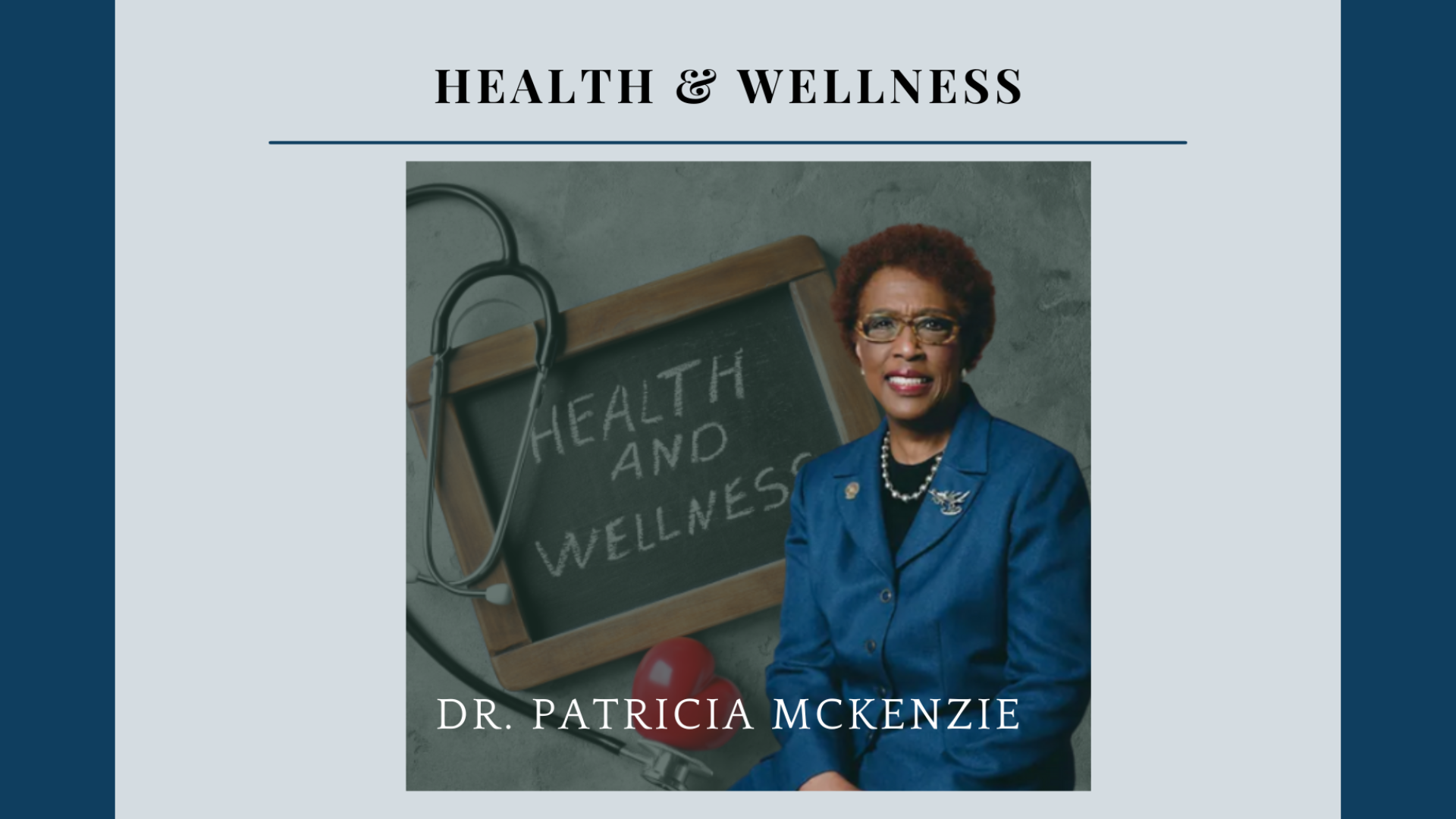
HEALTH MINISTRY IN THE EIGHTH EPISCOPAL DISTRICT (VOL 12-2024)

Dr. Patricia D. McKenzie
Episcopal Coordinator for Health Ministries
Social Share
PART I.
NATIONAL HEALTH OBSERVANCES FOR DECEMBER
A. WORLD AIDS AWARENESS MONTH
Source: Office of Disease Prevention and Health Promotion. U.S. Department of Health and Human Services. https://odphp.health.gov/
FACTS:
A. Introduction-
- 1. Human immunodeficiency (HIV) is a virus which attacks the body’s immune system. Acquired immunodeficiency syndrome (AIDS) occurs at the most advanced stage of the infection.
- 2. It is spread from body fluids of the infected person including blood, breast milk, semen, and vaginal fluids. It is NOT spread by kisses, hugs, shaking hands or personal items, and sharing food.
- 3. It affects adults, adolescents and children under 5 years.
- 4. Concern-People may not experience symptoms during the first few weeks. Others may have influenza-like illness (fever, headache, rash and sore throat). Therefore, monitor your health and see your health care provider with any health changes. As the disease progresses, it may cause swollen lymph nodes, weight loss, fever, diarrhea and cough.
- 5. Risk Factors include having anal or vaginal sex without a condom, sharing contaminated needles, receiving unsafe injections, and contaminated blood transfusions.
- 6. Diagnosis is possible with rapid tests which provide same day results.
- 7.HIV is preventable, you must know and decrease all known risk factors.
- 8. Treatment is currently with the antiretroviral drug which must be taken every day for the rest of a person’s life.
- 9. You must know your partner!
B. World Data-
- In 2023 an estimated 39.9 million persons were living with HIV. Approximately 630,000 died from HIV related causes. An estimated 1.3 million people acquired HIV in 2023. The target is to end the HIV epidemic by 2030. By 2025, 95% of all people living with HIV should have a diagnosis and must be receiving antiretroviral treatment.
- 2. In 2023, of all people living with HIV, 86% knew their status and were taking the treatment. However, only 72% were responding to treatment which improved their health and decreased transmission.
- 3. It remains a public health issue.
B. NATIONAL IMPAIRED DRIVING PREVENTION MONTH
Source: The National Highway Traffic Safety Administration. https://www.nhtsa.gov/
FACTS:
“Impaired driving includes distracted driving, drugged driving, and drunk driving. All 50 states and DC enforce the minimum legal driving age of 21 years.
Tips for Celebrating and Driving Safely Include-
- 1. Designate a non-drinking driver.
- 2. Allow at least one hour between drinks (One drink is equal to 12oz. beer, 5oz. glass of wine, 10oz of liquor).
- 3. Set a limit on number of drinks and stick to it.
- 4. Alternate drinking alcohol with soda, juice or water and eat food.
- 5. Don’t mix with your medications.
- 6. If you make an alcoholic punch, use fruit juice instead carbonated water (will decrease absorption into blood.
- 7.Stop serving alcohol at least one hour before the party end.
- 8. Do a sober period with 1 or 2 weeks before parties begin; keep cab number and use or use a ride-sharing service.
- 9. Be the designated driver and don’t drink at the party.
- 10. No sobering element, neither coffee, nor showers only time does. The risks associated with driving while impaired are real and result in tragic consequences.
PART II.
HEALING AIDS FROM THE BALM IN GILEAD

Source:
Click on Education and Inspiration and find
topics-Sunday Morning Health Corner and Resources
Facts:
- “Featured Health Literacy Eating Healthy for the Holidays,”
- “Managing Screen Time and Promoting Healthy Tech Habits,”
- “HPVA Awareness.”
- “Diabetes,”
- “HIV/AIDS.”
PART III.
CENTER FOR DISEASE CONTROL AND PREVENTION
A. Women and Heart Disease.
FACTS:
“CDC Recommends Updated 2024-2015 COVID-19 and Flu Vaccines for Fall/Winter Virus Season.
- 1. It is safe to receive both vaccines at the same visit.
- 2. Data shows importance of vaccination to protect against severe outcomes of COVID-19 and flu, including hospitalization and death.
- 3. Everyone ages 6 months and older should receive these vaccines to protect them during the fall and winter, whether or not they have ever or previously been vaccinated.
Updated COVID-19 vaccines are available from Moderna, Novavax and Pfizer. The virus that causes COVID-19, SARS-Co-V-2 is always changing and protection declines over time. Receiving the 2024-2025 vaccines will restore and enhance protection against the virus variants currently responsible for more infections and hospitalizations in U.S. The vaccine also reduces the chance of suffering the long-term effects which can develop during or following acute infection and last for an extended duration. The CDC recommends the vaccination during September and October. However, there are some people who should get it in July and August. This group includes pregnant people, children who need two doses and adults 65 and older, please see your health care provider about the timing.
For additional information on updated COVID-19, visit Coronavirus Disease 2019 (COVID-19) I CDC
For more information on updated flu vaccines, visit Seasonal Flu Vaccines l CDC”
Learn More
Archives


HEALTH MINISTRY IN THE EIGHTH EPISCOPAL DISTRICT (VOL 4-2025)

HEALTH MINISTRY IN THE EIGHTH EPISCOPAL DISTRICT (VOL 3-2025)

HEALTH MINISTRY IN THE EIGHTH EPISCOPAL DISTRICT (VOL 12-2024)
HEALTH MINISTRY OF THE EIGHTH EPISCOPAL DISTRICT (VOL 10-2024)
